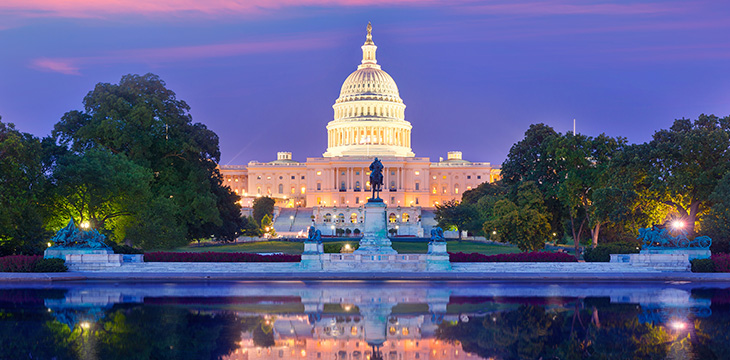|
Getting your Trinity Audio player ready...
|
On Thursday, the U.S. Congress held a couple of hearings centered on cryptocurrencies and designed to provide congressional members with much-needed knowledge on the subject. The first was led by the House Committee on Agriculture (HCA), while the second by the House Financial Services Committee (HFSC) and saw participation by experts in the field of traditional finance, as well as crypto. While no major breakthroughs resulted from either hearings, it’s safe to say that its participants were now better prepared to tackle the subject of regulations in the country.
The HCA’s hearing brought in an array of crypto professionals, including Amber Baldet, CEO and co-founder of Clovyr; Daniel Gorfine, chief innovation officer of the Commodity and Futures Trading Commission (CFTC); and Scott Kupor, managing partner of Andreessen Horowitz. The hearing was significantly more technical and provided deeper insight than have previous panels.
Baldet suggested that “the committee can take a more proactive approach to regulation,” similar to how U.S. regulators approached the Internet, instead of being more reactionary. Gorfine, who recognized that the vast majority of the initial coin offerings (ICOs) that have been introduced were not entirely legitimate, said that the CFTC has taken major steps to educate investors and regulators in a bid to prevent future scams. He explained, “We all have the shared goal to bring clarity and certainty to the market but [we] also need to be sure that we are thoughtful in our approach and do not steer or impede the development of this area of innovation. Indeed, while some may seek the immediate establishment of bright lines, the reality is that hasty regulatory pronouncements are likely to miss the mark, have unintended consequences, or fail to capture important nuance regarding the structure of new products or models.”
The hearing proved to be very “elucidating” for members of the congressional panel, and should prove key for future developments.
The HFSC, which addresses monetary policy and trade, heard from a number of specialists on finance and crypto in its hearing. While the overtone was a little more reserved, the outcome still proved to be beneficial to the cryptocurrency ecosystem. Generally speaking, all participants agreed that more investigation is needed regarding crypto, but a professor of Economics at the University of California Santa Barbara, Dr. Rodney J. Garratt pointed out, “…I believe that the Federal Reserve will, at some point in the future, need to respond to the disappearance of cash and I have given some reasons why it might consider offering some form of retail-oriented central bank cryptocurrency. There are, however, many issues related to the viability and security of this technology that need to be fully resolved before adoption. Moreover, a much deeper understanding of the monetary policy and financial stability issues is needed.”
Garratt was asked about whether or not crypto could be used as a substitute for fiat. He said that “in terms of a conceptual idea,” crypto was already a currency to some degree, adding that it cannot properly operate as a medium of exchange because of its price volatility. He said, however, that the volatility could begin to decline as adoption increases, asserting that “people have to start using it as transactions.”
The director of the Center for Data Analysis at the Heritage Foundation, Norbert Michel, was also present at the hearing. He said that a capital gains tax issues are the biggest problem because of complex tracking processes, but pointed out that crypto is not any more geared for criminal activity than any other vehicle. “Yes it is true that criminals have used bitcoin, but it’s also true that criminals have used airplanes, computers, and automobiles. We shouldn’t criminalize any of those instruments simply because criminals used them,” he explained.
Alex Pollock, a senior fellow at the R Street Institute, took to the microphone to discuss central bank-digital currency (CBDC). He said, “[To] have a central bank digital currency is one of the worst financial ideas of recent times, but still it’s quite conceivable…” He further asserted that a central bank’s digital currency would increase the power of the bank that could lead to the Federal Reserve becoming the “overwhelming credit allocator of the U.S. economic and financial system” if the Reserve were to adopt a CBDC.
There is obviously still a long road ahead before legislators resolve regulatory stances on crypto. However, that more hearings, discussions, panels and studies are being conducted is certainly a step in the right direction and provides a certain amount of legitimacy to crypto. If it were a non-issue, it wouldn’t need to be addressed at the highest levels.

 02-27-2026
02-27-2026 




